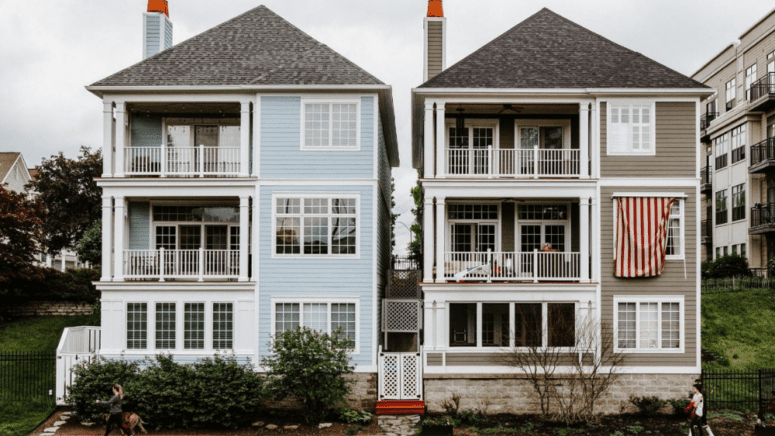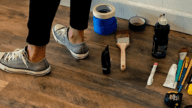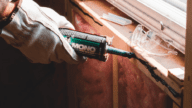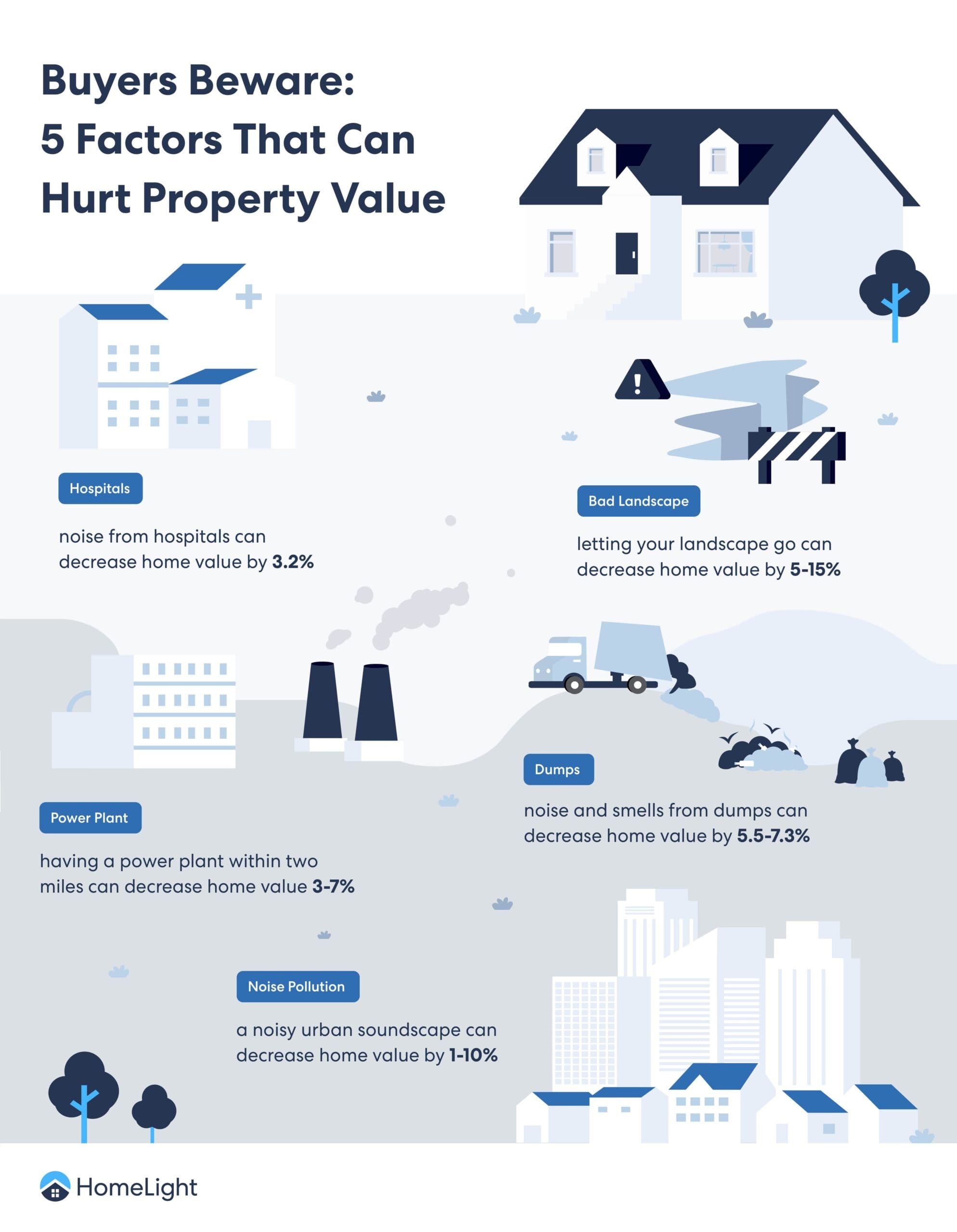17 Things That Can Hurt Your Property Value and Which Ones You Can Fix
- Published on
- 14 min read
-
Jennifer Schmidt, Contributing AuthorCloseJennifer Schmidt Contributing Author
Jennifer Schmidt is a freelance writer based in Vancouver, Washington, who specializes in real estate, human resources, and technology. When not writing, you’ll find her scanning real estate listings for the latest housing trends and decorating ideas.
-
Richard Haddad, Executive EditorCloseRichard Haddad Executive Editor
Richard Haddad is the executive editor of HomeLight.com. He works with an experienced content team that oversees the company’s blog featuring in-depth articles about the home buying and selling process, homeownership news, home care and design tips, and related real estate trends. Previously, he served as an editor and content producer for World Company, Gannett, and Western News & Info, where he also served as news director and director of internet operations.
Your home is like a bank vault that protects your money. You want it to be solid and secure. Safeguarding your property with some sweat equity can help you get the best price when you sell. But first, you’ll need to know what hurts property value to ensure your investment is safe and sound.
What hurts property value can be things specific to your house — such as deferred maintenance issues, outdated kitchens and bathrooms, or a noisy location — or by outside factors such as your local real estate market or the state of the overall economy. While you can’t take steps to address external forces, you can take action to improve the value of your home.
Not sure where to start? Our top agents do, including Kent Pratt from Missoula, Montana, with 33 years of real estate experience, and Jennifer and Andrew Oldham from San Jose, California, who have 24 years of experience to help make your home the gold standard of the housing market. These experts, along with our extensive research, will help you tackle the biggest issues that can hurt your property value.
What hurts property value — 17 factors to consider
1. Deferred or neglected maintenance
Deferred or neglected maintenance is the fastest way to watch your house depreciate. A small drip from your water heater might not seem like a big deal until it leaks into your foundation and causes it to crack. Even if all your systems function today, if they’re not regularly maintained, equipment often breaks and needs to be replaced, which can be expensive.
Going through each part of your home and doing a checkup is one of the best ways to know the health of your home and assess your current situation. The Healthy Homes Maintenance Checklist published by the National Center for Healthy Housing (NCHH) will help you discover potential problems.
Systems that are damaged or issues that could threaten the entire home should be addressed first, such as:
- Old HVAC systems
- Termite damage
- Decaying wood
- Crumbling foundation
- Frayed electrical wires
- Cracked driveways
- Leaky plumbing
- Damaged gutters
- Missing roof shingles
2. Home improvements done wrong or not built to code
Sometimes doing your own home improvements can save a lot of money, but only if the job is done right. Otherwise, your weekend warrior projects can beat up your wallet if they need to be corrected. Also, if building permits are forgotten, this could result in code violations. Ultimately, this issue could also affect insurance claims, such as those that are caused by bad wiring or plumbing. The cost of paying for any fire or flood damage could result in thousands of dollars out of your pocket.
3. Outdated kitchens and bathrooms
If your kitchen looks like it was used in That ‘70s Show, with its original avocado green decor, your buyers probably won’t find it very appetizing.
“A buyer isn’t going to necessarily accept a 1970s range oven just because it works,” says Pratt.
Also, a bathroom that’s entirely pink, including all its fixtures, can be memorable in a bad way.
“You’ll see that a lot in houses where they’ll fix up everything but that one bathroom, and that one bathroom is from 1970, and it looks horrible,” says Andrew Oldham. “But still, even when you look through 30 photographs, all you’re gonna remember is that one bathroom. When a buyer will describe the house to us, they say, ‘Oh, yeah, that’s the one with the pink bathroom.’”
Buyers who aren’t in love with your retro look will be calculating how much it will cost to remodel the kitchen and bathroom to bring them up to date.
If you’re looking to remodel because you’re planning to sell soon, bright, neutral kitchens and bathrooms can help attract buyers.
4. Overly personalized renovations
Your home should reflect your personality — but when it comes time to sell, highly customized spaces can backfire. Unusual features like a wall-to-wall aquarium, a converted garage gym, or a custom theater room might not match the tastes of the average buyer.
Too much personalization can make a home feel less adaptable. If you’re renovating with resale in mind, stick to neutral designs that allow future buyers to picture their own lifestyle in the space.
5. Shoddy workmanship
Mistakes made during the construction of your home or during renovations can affect your property value, especially when it comes to the final appraisal. These errors are often the result of a contractor or DIY homeowner trying to save money or time during a build, renovation, or repair, but shoddy workmanship compromises quality and can reduce the value of your home in the long run.
According to Pratt, each repair can be an added expense the buyer may try to deduct from the list price. “They’ll often look at the functionality of everything, including the kitchen cabinets.”
Buyers who find issues caused by shoddy workmanship will often present a lower offer to offset the money needed to make all the repairs, including items such as:
- Tile that is crooked
- Warped flooring
- Awkward home additions
- Uneven decking and railings
- Gaps between flooring and walls or thresholds
- Inadequate wiring
6. Bad landscaping or dead trees
Part of your curb appeal is actually seeing key features of your home from the curb. If your house looks like you’ll need a machete to access the front door, it’s time to take a serious look at your landscaping.
First impressions matter, and overgrown bushes or dying trees can send the wrong message. Poor landscaping signals neglect and hints at bigger maintenance issues inside the home. Dead trees can also pose a safety hazard, especially in storm-prone areas. Having a house overtaken by trees, bushes, and weeds is not only unattractive but can also create hazards. Overgrowth can present fire dangers in some regions, or attract bugs and other creatures that could damage your house.
Cleaning up your yard, trimming trees, adding fresh mulch, and planting colorful flowers can create instant curb appeal — often for a relatively low cost compared to bigger repairs.
7. Frail or damaged roof
Having a solid roof over your head protects everything else in your house and can make a big difference in your overall property value. Some signs that your roof could need some attention are physical damage, worn-out shingles, or obvious leaks.
“It’s not uncommon to need a new roof, and that’s one of the big ticket items that the seller has to address whenever they prepare a home for sale. It can be a $2,000 repair to a $40,000 repair. So generally, what we’ll do is get a roof inspection upfront,” Andrew Oldham explains.
8. Unpleasant odors (pets, mold, cigarette smoke)
Bad smells are an instant turnoff. Lingering odors from pets, mold, cooking, or cigarette smoke can make a home feel dirty even if it’s spotless. Worse, smells suggest hidden problems like water damage or poor ventilation.
Before listing, deep clean carpets, repaint walls, and use an ozone machine if needed. Sometimes, it’s worth bringing in a professional cleaning crew to ensure the home smells as fresh as it looks.
What hurts property value — external factors
9. High noise levels
Busy off ramps or emergency services such as police, fire, or hospitals that use sirens are considered types of noise pollution. Buyers will generally keep this in mind when they walk through and measure what they can hear inside your house. If it’s too noisy, they may walk away from the purchase or offer less.
10. Registered sex offenders in the area
According to Safehome.org, in 2024, it’s estimated that a total of 795,000 people are listed on sex offender registries. If registered sex offenders live in your area, that can affect your property value, decreasing it due to safety concerns.
11. Neglected houses nearby or “Zombie homes” left vacant or deteriorating
Homes that are seriously neglected — or considered “Zombie homes” because they have been left vacant and deteriorating — can spoil nice neighborhoods. Their dilapidated facades can negatively affect the property value of every other house sitting around them.
“We took a client into a great neighborhood in Carmel [California] to look at this beautiful house they saw on the MLS and all of the listing aggregators. We pulled up and just two houses before that one, it was like the Amityville House. This house had tires, old tractor parts, and it had a dummy doll sitting in a chair. Literally, I got worried. And everywhere around, there were beautiful homes. That poor neighborhood got wrecked from that one house,” says Jennifer Oldham.
12. Traffic noise
“When you’re pricing the property from a seller’s perspective, if you’re on a busy road, it is going to somewhat devalue the property, versus a house on an interior lot that doesn’t get that traffic noise,” says Pratt.
Noise pollution is one of the top reasons buyers walk away. Homes near highways, airports, train tracks, or busy commercial areas tend to sell for less simply because constant noise is hard to ignore. Even inside the home, vibrations or traffic sounds can be a deal-breaker. If your property is in a noisy area, installing soundproof windows or highlighting quiet interior spaces can help soften the impact.
While the property value can decrease due to noise, Pratt also says that is often accepted by potential buyers who are looking at the house in that location. Some ways to help defer the noise include installing better-insulated windows and planting shrubbery or hedges to help. Also, he recommends a solid six-foot privacy fence to help cut down the volume.
13. Location, location, location
“Well, location is probably the most paramount thing in valuing a property and the surrounding properties,” Pratt says. “And nicer neighborhoods and more central neighborhoods tend to sell at a higher price per square foot than neighborhoods on outlying areas, if all the features are the same.”
In addition, living close to unpleasant facilities or undesirable businesses can also affect your overall property value due to an increase in noise, pollution, or traffic. Some examples include:
- Dumps or landfills
- Power plants
- Hospitals
- Bad school
- Strip clubs
- Cemetery or funeral home
- Shooting range
- Sewer plants
14. Neighbors with yards that need attention
While your neighbor’s crabgrass might make you, well, crabby, you can’t choose who lives next to you or how they take care of their yard. But sometimes, you can find common ground with fences or landscaping that borders your properties and offer to share the cost, which would help both of you and make everyone happy.
15. Proximity to power lines
While power lines are essential infrastructure, they aren’t exactly a selling point. Homes located near high-voltage power lines often face stigma over health concerns, whether justified or not. Even if studies are inconclusive, the mere perception of risk can drive buyers away. In addition to safety worries, the visual impact of towering lines can dampen curb appeal. If you live near power lines, focus on maximizing your property’s landscaping and interior upgrades to help offset potential buyer hesitation.
16. Controversial neighboring properties
Living next to a prison, funeral home, landfill, or noisy industrial facility can drag down your home’s value. Buyers tend to steer clear of locations that feel unsettling or inconvenient. Even if you love your home, the surroundings may leave a bad first impression that’s hard to shake. If you’re selling, highlight the home’s positives — like interior upgrades or a larger lot — to shift the focus away from nearby negatives.
17. Poor school district ratings
Even if you don’t have kids, school district ratings can play a big role in your home’s resale value. Many buyers consider schools a top priority, and homes in highly rated districts often hold their value better through market ups and downs. On the flip side, a poor school rating can lower demand and push prices down. If you’re selling in a weaker district, emphasize other advantages like a short commute, nearby parks, or community amenities.
Plan of action: getting your house ready to sell
If you are ready to move and want to sell your home, consider these steps you can take to attract more buyers and higher offers:
Paint the exterior of your home
Pratt says that ideally, there shouldn’t be any deferred maintenance on the exterior of your home, including the paint.
A home should have “good paint and there isn’t wood exposed to the exterior elements,” says Pratt.
He further explained that when a prospective buyer sees that the exterior paint is done in up to date colors, they know they won’t have to deal with it.
Trim the trees and maintain the lawn
Before going on the market, Pratt recommends keeping the trees pruned so foliage doesn’t grow against your house, and everything should be “clean and pristine.” In addition, he recommends mowing the lawn and raking leaves in the yard for a well-maintained look.
Consider replacing the roof (if needed)
According to Pratt, many times, appraisers will want to see 3-5 years of life remaining on a roof in order for a home to meet the buyer’s financing requirements. Or sometimes a homeowners insurance inspection or agent will request that the roof issue be addressed in order for the buyer to be able to get homeowner’s insurance.
Replace the carpet
If your carpet is bright orange or has seen the trampling of little feet for over 15 years, it could be time to replace it. Bad carpet can impact your home’s value because, if it’s really dated or worn out throughout the house, buyers consider that a huge expense. They will typically negotiate a lower offer price in order to afford installing new carpet before they move into your home.
Clear out the clutter
Clutter takes up space and if your house resembles a storage facility, buyers are not going to be able to notice all the great features of your home. They’ll be too distracted by your sports memorabilia and have a hard time visualizing their items instead of your football trophies. Taking your large collections and other items to an actual storage facility will make your home look larger and visually appealing to prompt more and better offers.
Wash the windows
Windows that are washed both inside and out, according to Pratt, show that you aren’t deferring the maintenance of your home. Besides, if the yard looks great, but your windows distract a buyer’s attention with old dirt and grime, they often wonder what else is being neglected.
Change your appliances
Appliances that are outdated or not as efficient are going to be the focus of your kitchen and make buyers contemplate if they can afford replacing those large ticket items after they move into your home.
When you’re pricing the property from a seller’s perspective, if you’re on a busy road, it is going to somewhat devalue the property, versus a house on an interior lot that doesn’t get that traffic noise.
 Kent Pratt Real Estate AgentClose
Kent Pratt Real Estate AgentClose Kent Pratt Real Estate Agent at Windermere Real Estate
Kent Pratt Real Estate Agent at Windermere Real Estate
- Years of Experience 34
- Transactions 62
- Average Price Point $360k
- Single Family Homes 52
The bottom line — take good care of your home, and have a top agent take good care of you
Whether you paint, landscape, remodel, or get a new roof, each improvement will make your home the one buyers will want to see first. Finding a top real estate agent that can help you choose the right strategy and avoid any problems along the way is the first step. If you want to find an experienced agent in your area, consider HomeLight’s Agent Match tool to get the best results from your home sale.
Header Image Source: (Gabe Pierce / Unsplash)
- "Healthy Homes Maintenance Checklist," National Center for Healthy Housing
- "What Is Noise Pollution?," Environmental Pollution Centers (2024)
- "Sex Offender Registry Statistics: 2024 Data for All 50 States," SafeHome, Rob Gabriele (September 2024)
- "Zombie Homes," NYC Housing Preservation & Development








